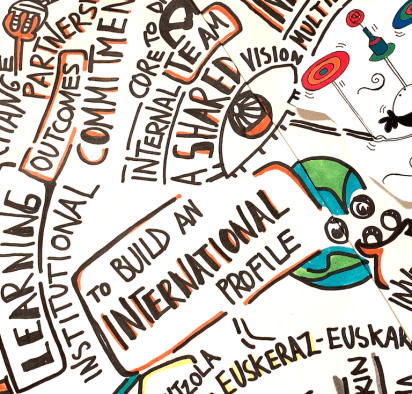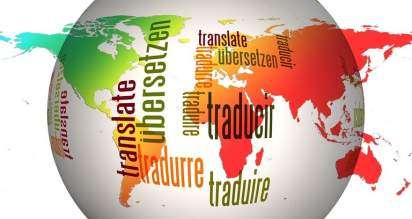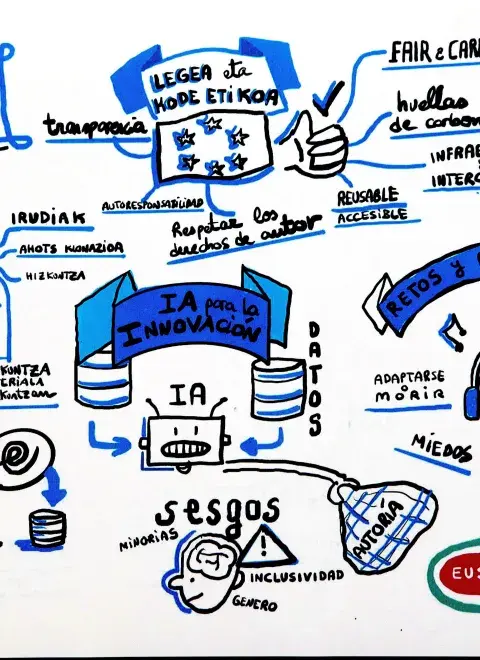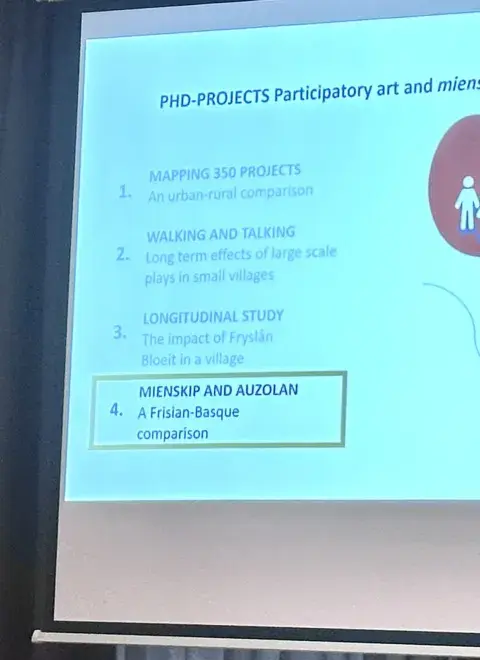
- Blog
Ocean i3 Language Policy - A transversal research project in support of the cross-borders multilingual dynamics
It is supported by an expert research team that observes and assists based on a 'language use awareness' approach and activates communication resources that go beyond language.
Ocean i3 is an INTERDISCIPLINARY, CROSS-BORDER and INTER-CULTURAL project aimed at the university community of the University of Bordeaux and the University of the Basque Country (UPV/EHU) for different undergraduate and postgraduate degrees. The community focuses on 'Mission Oriented Research and Innovation' to carry out research and intervention-based learning projects that address a common mission: reducing plastic pollution on the Basque-Aquitaine coastline.
This language policy plays an important role in enabling participants to assert their linguistic identities without invading others, on the contrary enriching one another with the multilingual experience.
The multilingual and inter-cultural dimension is transversally incorporated in all of Ocean i3 activities. It is supported by an expert research team that observes and assists based on a 'language use awareness' approach and activates communication resources that go beyond language. It works in laboratory mode to define guidelines adapted to the complexity of the project (inter-institutional, inter-cultural, multilingual, international) in order to transfer them to other Bordeaux-Euskampus Campus projects.
The DREAM research group, in collaboration with Euskampus, has drafted a tentative Language Policy for the Ocean i3 community , which aims to help maintain the community’s linguistic diversity, explaining the main reasons for its implementation. It constitutes a protocol to preserve and promote inter-culturality and multilingualism in the Ocean i3 cross-border community.
Such a language policy fosters the use of the four languages (Basque, French, Spanish and English) and provides participants with a set of ground rules to help them decide which language to use at any given time, give everyone the opportunity to express themselves in the language of their choice and activate the entire community to build the collective meaning. Moreover, this language policy plays an important role in enabling participants to assert their linguistic identities without encroaching on those of others, but rather mutually enriching each other.
Therefore, the main objectives of this language policy are to:
- Encourage and foster linguistic diversity
- Create linguistic awareness among participants in order to foster social cohesion based on tolerance of linguistic diversity and linguistically sensitive cross-border collaboration
- Protect and promote the use of Basque as a minority language

Multilingualism as an opportunity, part of our identity, rather than a problem to be solved
Identity is constructed through language and possibly language plays an important role in identity construction (Dewaele, 2007). The individual’s ability to communicate in multiple languages has a direct effect on his/her sense of belonging to various ethnic and linguistic groups (Dewaele, 2007).
Helpful habits would include, amongst others, facing the multilingual environment as part of our identity in the cross-border arena of collaboration of the UPV/EHU and the University of Bordeaux, enhancing the language awareness in pursuit of social cohesion and flexible working dynamics where the four languages that co-exist are equally respected and used.
Language policies can have an important influence on language developments, in particular when a minority language is involved (Shohamy, 2006; Spolsky, 2009). The sense of belonging to this multicultural group implies a multi self-representation and acceptance of this diversity. The social identity comprises a variety of identities that allow each other to co-exist. This is the kind of Europe we want to construct, reassuring the individual to be true to his/her origins but open to the world and the interpretation of reality under different kaleidoscopes, under a different structuring of reality.
However, if we were to reflect on the fact that there is no language contact without language conflict, (Nelde, 1997) a pertinent question comes to our minds: How can we get the 4 languages to co-exist peacefully? This Language Policy would enable all participants to know beforehand how to behave and what languages to consider at play at all times.
This practical guide provides participants with a set of rules, materials and tools to help maintain a multilingual approach during the different moments of the community sessions.

Commitment and awareness-raising
One of the purposes of this Language Policy is to raise awareness among members of the Ocean i3 community to use a multilingual approach. It seeks to promote linguistic diversity and the ideals of a multilingual environment in which languages are not seen as separate entities but as interconnected systems with multiple interactions (Cenoz & Gorter, 2014). It is of fundamental importance to introduce and explain the multilingual character of the Ocean i3 community to its members from the very beginning.
To do so, the following points need to be adopted:
- Before starting a new edition of Ocean i3, a preliminary meeting will be held in which multilingualism will be introduced to new members of the community. This meeting will explain what multilingualism is, what ideals it follows, how Ocean i3 is involved, what practices are used in this community and what is expected from new participants.
- A copy of the Ocean i3 Language Policy will be provided to each participant of the community, via e-mail, so that each member will be able to become familiar with the rules and practices of the community before starting the sessions. Moreover, the Language Policy will also be published on the Ocean i3 and Euskampus web pages.
- Before each session, the moderators will briefly introduce the multilingual reality of Ocean i3, to raise awareness among community members. In this presentation the ideals of this multilingual community will be communicated:
a) Foster linguistic diversity;
b) All local languages are welcome, as well as the minority language and the lingua franca;
c) The use of the minority languages is particularly welcome, in order to protect and foster its use among the members of Ocean i3
d) Each member is free to use the language in which he/she feels most comfortable, and should not hesitate to switch between different languages and;
e) Co-construct meaning together using all the linguistic resources of the participants.
This small presentation will be made either through PowerPoint with images, videos and results of the studies conducted or through flyers that will be distributed to the participants or simply with a small speech that the group moderator will give at the beginning of each meeting.
Finally, the language policy is conceived as a living tool that will be open to changes put forward by users. It is all about testing and experimenting in order to continue learning in the construction of a cross-border, multilingual and multi-cultural community.
Find out more about the Ocean i3 project on the official website.
Learn about the Language Policy.
REFERENCES
- Cenoz, J., & Gorter, D. (2014). Focus on Multilingualism as an Approach in Educational Contexts. Heteroglossia as Practice and Pedagogy , 239-254.
- Dewaele, J.M. (2007). Becoming bi- or multilingual later in life. Handbook of Multilingualism and Multilingual Communication. Berlin: Mouton De Gruyter, pp. 89-118.
- Nelde, P.J. (1997) “Language conflict”. In F. Coulmas (ed.) The Handbook of Sociolinguistics. Oxford: Blackwell.
- Poplack, 2001. Code-switching (Linguistic). In Smelser, Niel & Baltes, Paul (eds.), International Encyclopedia of the Social and Behavioral Sciences (pp. 2062-2065). Elsevier Sciences Ltd.
- Shohamy, 2006. Language Policy: Hidden Agendas and new approaches. New York: Routledge
- Spolsky, 2009. Language Management. Cambridge: Cambridge University Press.

Suscríbete a Newskampus
Y recibe nuestras últimas noticias en tu email.




